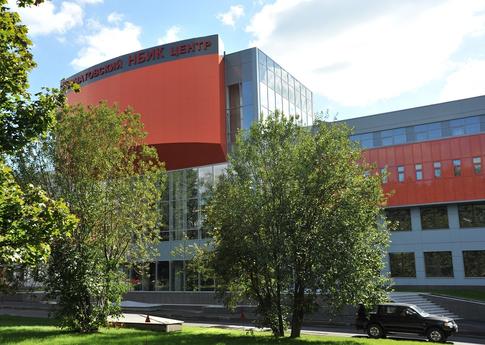XFEL: Kurchatov Institute becomes shareholder of European XFEL
Kurchatov Institute becomes shareholder of European XFEL
As of 30 June, the Russian National Research Center Kurchatov Institute is the second largest shareholder of the European XFEL GmbH. The shares now held by the Kurchatov Institute total 27% of the share capital of European XFEL and were formerly held by JSC RUSNANO, a state-owned company that contributes to the development of nanotechnology. RUSNANO transferred its shares following a decision by the Russian government to change responsibilities as European XFEL moves from the construction phase to the operation phase in 2017.
Russia became one of currently 11 countries participating in the European XFEL in 2009. On behalf of the Russian government, RUSNANO invested up to now more than 300 million euro in the construction of the facility, while the Kurchatov Institute will concentrate on the scientific utilization of the facility during the upcoming operation phase.
As of now, the countries participating in the European XFEL are Denmark, France, Germany, Hungary, Italy, Poland, Russia, Slovakia, Spain, Sweden, and Switzerland. The United Kingdom has stated its intention to join as a 12th member state. The costs for construction and commissioning amount to 1.22 billion euro (at 2005 price levels), of which Germany covers 58%, Russia 27%, and the other countries between 1% and 3% each.
The Research Centre Kurchatov Institute is a leading research center and the largest interdisciplinary laboratory in Russia. It has integrated four research institutes: the Kurchatov Insitute in Moscow, the Petersburg Nuclear Physics Institute in Gatchina, the Institute of Theoretical and Experimental Physics in Moscow, and the Institute for High Energy Physics in Protvino near Moscow. Top priorities of the research centre are the development and implementation of leading-edge technologies based on unique research and mega-facilties. The centre employs almost 10 000 people and pursues an interdisciplinary approach from fundamental research to ready for use technologies. It is also a scientific coordinator of Russian participation in almost all large international projects of international scientific and technical cooperation such as European XFEL; the International Thermonuclear Experimental Reactor (ITER); the Facility for Antiproton and Ion Research (FAIR) in Darmstadt, Germany; CERN in Geneva; the European Synchrotron Radiation Facility (ESRF) Grenoble, France; the High Energy Accelerator Research Organisation (KEK), Tsukuba, Japan; and others.

